Millionaire Builds Nearly 100 Homes to Reduce Homelessness in His Town
Homelessness is an issue that nearly every city, big and small, faces around the world. While governments, NGOs, and other organizations are taking steps to combat it, unfortunately, it still remains unsolved. This Canadian millionaire decided to take matters into his own hands and use his millions to help homelessness in his hometown. This is what he did.
Millionaire from Fredericton, New Brunswick, Builds 99 Tiny Homes to Combat Homelessness and Provide Jobs
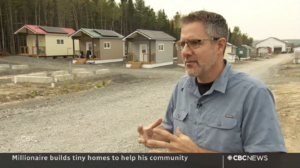
In the Canadian city of Fredericton, New Brunswick, a millionaire entrepreneur has taken a remarkable initiative to address the issue of homelessness in his community. Marcel LeBrun, the founder of the successful social media monitoring company, has invested $4 million of his own money to build 99 tiny homes for those in need. Not only has he provided a safe and stable housing solution, but he has also created job opportunities through his innovative approach. Let’s delve into the inspiring story of Marcel LeBrun and his project, 12 Neighbours.
The Origins of 12 Neighbours
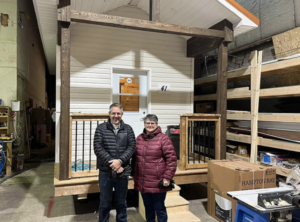
After selling his company for a significant sum of money, LeBrun decided to use his newfound wealth to make a positive impact. Recognizing the homelessness problem in Fredericton, he envisioned a community of tiny homes that would provide a second chance for homeless individuals. He named this project 12 Neighbours, with a goal of building a gated community consisting of 99 homes and an enterprise center, offering both housing and job opportunities.
Addressing a Pressing Issue
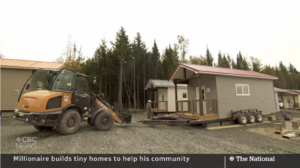
Homelessness affects many people in New Brunswick, with approximately 1,600 individuals experiencing homelessness in at least a day last year. As we know, in other larger cities such as San Francisco, Los Angeles, and New York in the United States, the numbers of homeless are infinitely higher. Marcel LeBrun saw an opportunity to make a difference and improve the lives of those facing this challenging situation.
Building a Community
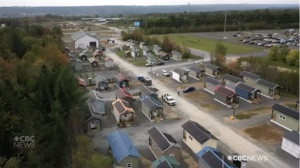
LeBrun’s vision for 12 Neighbours extends beyond constructing tiny homes. He considers himself a community builder, striving to create a supportive environment for residents. The tiny homes are more than just shelter; they are fully-furnished living spaces, complete with kitchens, living areas, bedrooms, full bathrooms, and even solar panel systems on the roofs.
Constructing the Homes
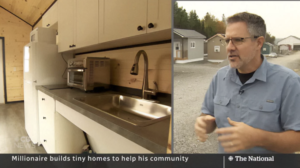
To bring his vision to life, LeBrun established a factory where skilled volunteers assemble the homes. Using advanced manufacturing techniques, the factory produces one tiny home every four business days. After construction, the homes are carefully moved onto concrete blocks, forming the foundation of the community.
The Impact of Ownership
Marcel LeBrun believes that homeownership plays a vital role in offering a sense of responsibility and stability to those who have experienced homelessness. By providing the opportunity for individuals to own their own property, 12 Neighbours aims to empower its residents and foster a supportive community.
The Importance of Jobs
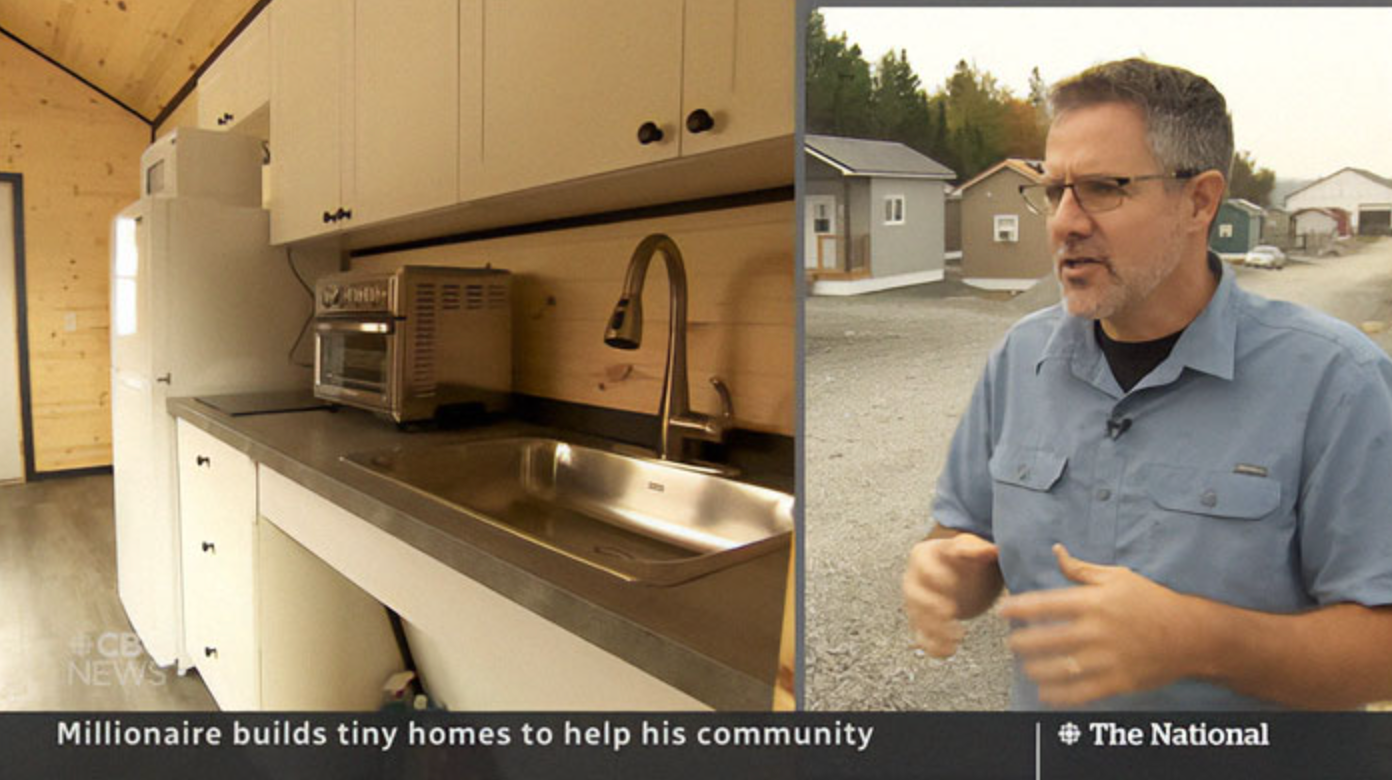
Beyond providing housing, LeBrun’s project also focuses on creating job opportunities for its residents. The enterprise center within 12 Neighbours features a coffee bar and a silk printing business, run by the residents themselves. This entrepreneurial initiative not only generates income but also encourages interaction between the residents and the broader community.
Controversy and Criticism
Like any ambitious project, 12 Neighbours has faced its fair share of criticism. Some argue that it is better to reintegrate homeless individuals directly into society instead of sequestering them together. However, LeBrun acknowledges the potential challenges involved and has taken measures to ensure the security and well-being of the community.
“It’s just as hard to go build four homes, in terms of all the hoops you have to run through, as it is to build 10 or 20, and we wanted to make a dent in the challenge that we have here in Fredericton.… If we want to actually make a meaningful difference, we have to build some houses,” LeBrun said of his approach versus a decentralized approach. “Let’s say I take someone who’s been living outside, and say, ‘OK, I’m going to put you in 10-years-free rent in the highest end apartment in the city.’ Are they going to succeed? That is not their community. That is not the context they’re used to living in,”
Securing the Community
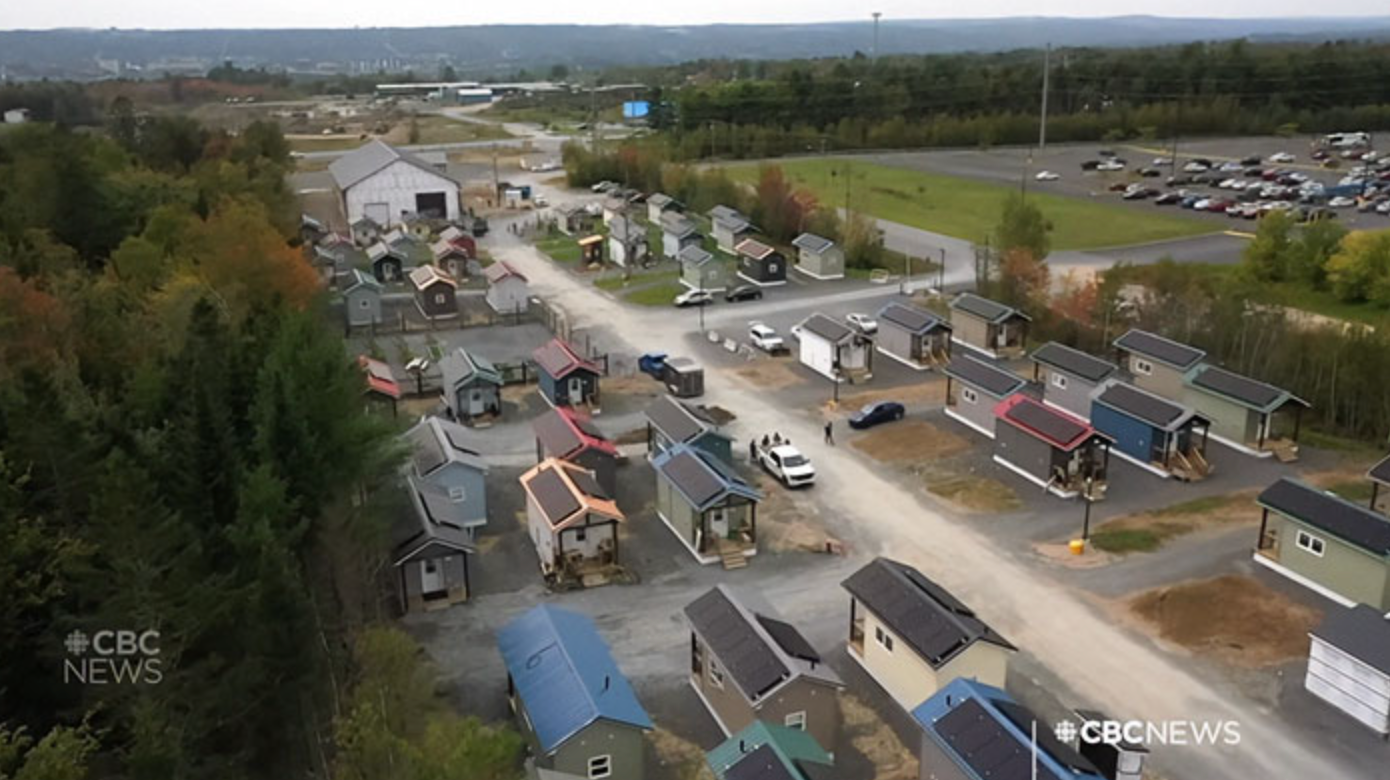
Recognizing the need for security, Marcel LeBrun has implemented state-of-the-art security measures within the 12 Neighbours community. With gated entrances and top-notch surveillance, the community provides a safe and protected space for its residents.
“[The resident] moves into a house and then other people show up and say, ‘Hey, you owe me this, you owe me that,’ and they kind of take over things and they have to learn, what does it mean to have a space where you are actually the manager of that space, and you control it … and you choose who you invite in and out? So, that’s a challenge.” LeBrun told CBC of some of the challenges residents face.
